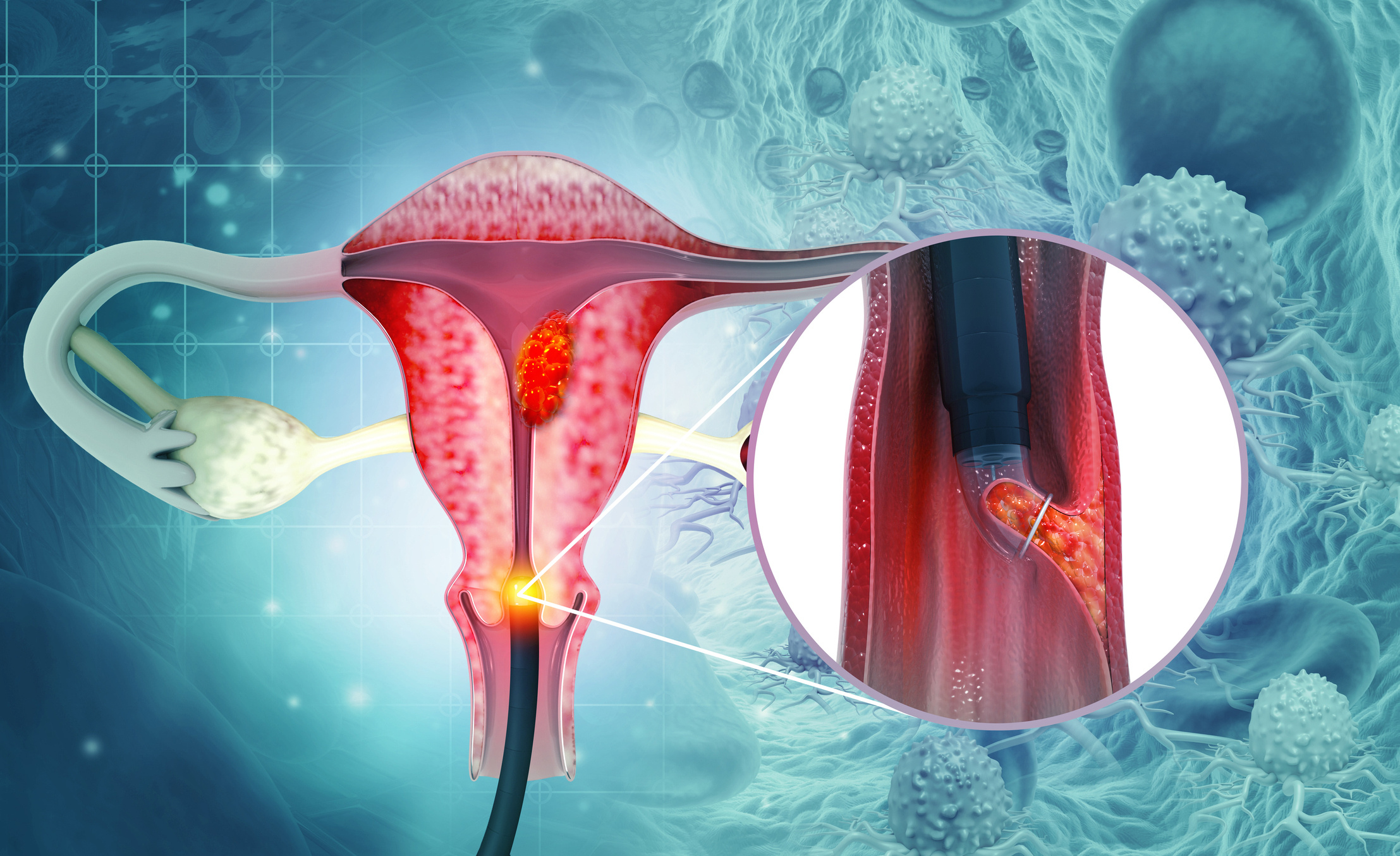Gynecologic Surgical Oncology Department
Gynecologic Surgical Oncology Department
Gynecologic Surgical Oncology Department
We perform the surgical treatment of cancer diseases in the female reproductive organs at our gynecologic surgical oncology department. We evaluate the most suitable treatment options for our female patients diagnosed with cancer using a multidisciplinary approach, and apply the surgical treatment process that best suits the patient.
Female reproductive organs are ovaries, uterus, fallopian tubes that transport the fertilized eggs to the uterus, vagina and vulva that limits the vaginal opening. Cancers of the female reproductive organs are called gynecologic cancers. The branch of science that examines cancers stemming from these organs is called gynecologic oncology. Our doctors dealing with gynecologic oncology and treat these diseases have experience and knowledge on early diagnosis of these diseases, surgical treatment with advanced methods, and treatments to be employed after surgery (radiation therapy, chemotherapy, hormonal therapies, etc.)
Which types of gynecologic cancers do we treat in our department?
The most common types of gynecologic cancers are cervical, uterine and ovarian cancers. Cervix is the part of the uterus connecting the uterus to the vagina. The cellular tissue of the cervix is different than the cellular tissue of the uterus. For this reason, cervical cancers have different development and spreading characteristics than uterine cancers. At our Gynecologic Oncology Department, we can treat all gynecological malignancies such as cervical cancer, ovarian cancer, uterine cancer, vulvar cancer, vaginal cancer and gestational trophoblastic tumors.
How do we plan treatment of gynecologic cancers?
In early stage endometrial and cervical cancer cases, the laparoscopic approach is preferred as this approach leads to faster recovery and less pain. We perform laparoscopic surgeries of gynecologic malignancies at high quality standards and without problem.
Instant diagnosis is possible since pathologists who attend the surgery evaluate the extracted piece (frozen section) at the instant. Thanks to our high technological infrastructure, pre-op radiology examinations are reviewed by our surgeons and radiologists also during the operation.
Post-op treatment decisions are made at “Tumor Councils” held regularly with the participation of specialists from medical oncology, radiology and pathology departments.

We listen to your opinions and suggestions to further enhance our service quality.

You can fill out the form to get a second doctor's opinion on the results of your tests, the diagnosis of your illness, and the treatment options we offer you.

You can receive the healthcare services you need at your home. Please fill out the form for home healthcare services.
Featured Articles
- 6 Nutrition Tips for Those Who Fast
- What is Disease X (Virus X)?
- How Does Cancer Form?
- What is an Ovarian Cyst?
- What is Cervical Cancer?
- What Are the Symptoms and Treatment Methods of Testicular Cancer?
- Symptoms, Diagnosis, and Treatment Process of Bladder Cancer
- Liver Cancer
- What is Stomach Cancer? What are Its Symptoms and Treatment?
- Thyroid: What is it, Symptoms, Diagnosis, and Treatment








